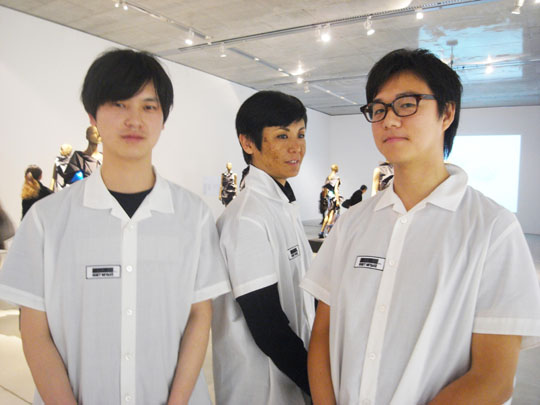It has been nearly 10 years since Issey Miyake released a new line of clothing, the last being "me Issey Miyake" — scrunched-up one-size "Cauliflower" T-shirts that stretch to fit any wearer. So it's no surprise that the launch of 132 5., a collection of garments based on origami folds, has caused quite a buzz within the fashion community. But Reality Lab Project Team, the creative research and development group behind 132 5. headed by the designer himself, has a far wider agenda as far as design in Japan is concerned. "Reality Lab" at 21_21 Sight showcases not only the cleverly constructed 132 5. garments, but also other innovations that Miyake deems significant to Japan's reputation in the world of design — a reputation that the exhibition suggests could, in the future, hang on the nation's ability to apply technological advances and creativity to helping reduce environmental damage.
"Japan produces no natural resources we can purely rely on for living" says Sakuraba, a member of the Reality Lab Project Team, all of whom prefer to give only their surnames to play down their individual roles in the project. It is this lack of resources that provided some motivation behind the show, which focuses on recycling and reducing environmental waste; education; and Japanese design.
Ironically, Miyake is probably best-known for his Pleats Please line of garments that helped bring about a high-fashion revival of polyester, a synthetic fabric that is perhaps not something normally associated with being ecofriendly.

















With your current subscription plan you can comment on stories. However, before writing your first comment, please create a display name in the Profile section of your subscriber account page.